Louis Benech came to gardening and landscape architecture via real love for plants.
In 1990, Benech was commissioned with Pascal Cribier and François Roubaud to restore the ancient part of the Tuileries Gardens. Since then, he has worked on many established and historic gardens, such as the Elysée Gardens and the Quai d'Orsay (both in Paris), Courson (southeast of Paris), Pavlovsk's rose pavilion (St Petersburg), the Gardens of the Achilleion (Corfu), the main square of the National Archives in Paris; the park at Chaumont sur Loire or a contemporary garden for the palace of Versailles (the Water Theatre Grove).
With a growing team, Louis Benech has now created way over 300 garden and park projects, both private and public, stretching from Korea to Panama, Peru, Canada, the United States, Portugal, Greece and Morocco. He has worked for individuals of many different nationalities, and many international organisations such as Hermès, Axa and Suez.
Louis Benech is cofounder of the Conservatoire des collections végétales specialisées; Member of the Royal Horticultural Society; Member of the Worshipful Company of Gardeners (London); Member of the International Dendrology Society (since 1987); Expert member of the Observatoire des Tendances du Jardin since its creation in 2002; "Honorary artist" in 2006/2007 for La Source Foundation (creation of an "extraordinary garden" with children); Winner of the "Talent d'Or 2007" at the "Sommet du Luxe et de la Création"; Member of the Conseil National des Parcs et Jardins (within the French Ministry of culture) between 2007 and 2013; Member of the selection committee for the Journées des Plantes de Courson; Jury member on the Prix Redouté; Jury president on the 2008 International Garden Festival of Chaumont-sur-Loire; Prix de l'Equerre d'Argent for La Cité des Métiers Hermès à Pantin. Chevalier of the Légion d'Honneur; Chevalier des Arts et des Lettres.
Florian DAVID: How did it all start Louis, I heard that at first you nearly became a lawyer?
Louis BENECH: Knowing that I would not be able to work in the forestry world in France, I decided to immerse myself into the plants world. And at the time I was also collecting seeds everywhere I was going, mostly tree seeds. And when I had my Law Master’s degree - I thought it was good to have this as a safety net in case of problems - I then decided to do what I was dreaming to do! And I hoped to study in England at the time, but it is very funny, for the places I was shooting for, that is Edinburgh or Kew, you had to have at least two years of practical work experience before getting in, and so there are a few registered places where you can actually work to get these experiences - if they accept you - their main purpose being to give you a good idea of the type of world you are then potentially going to enter; whereas in France, to do what’s called ‘The Ecole du Paysage’ (‘The School of Landscaping’) they ask you to have an undergraduate degree or two years of university studies and then you can apply. This is a totally different approach obviously: in England their process allows some people to realize that they might actually hate rain and nature (this can happen!), and so that type of people are pushed away from this profession. In France many start with the preconceived notion that designing a garden is a dream, and they think that they are artists, they are brought up to be artists - which is probably the most revered profession on earth - and this unpractical approach just blows my mind because it is a very practical thing to be a gardener! Just observing. You need a little bit of knowledge about what you do, otherwise nothing is going to grow: If you are dreaming of planting a baobab in the centre of Paris it will not grow! [Laughs]. So I went to England and worked at Hillier’s Nurseries, which was a good nursery. A became a nursery worker.
DAVID: Do you remember the moment things switched? From when you were about to embark into a career as a lawyer and suddenly had the courage to leave what looked like a safer, more conventional path, behind you?
BENECH: My father was not totally present in my own life. And when you are a teenager or child you are always happy to get the advice of your elders. But my father was not there. When I was starting law, every year I thought I should abandon because I was not experiencing any great pleasure. Well I had some pleasure when I was working really hard, because whenever you enter seriously in any kind of story and work hard, any story can get really interesting: just wishing to do something properly gives me some pleasure. But a very dear friend of mine, still alive, kept telling me that when you start something you have to finish it; and so I went on because he was someone I respected, a kind of friend but with an adult attitude. And so I decided he was right and I pressed on - not because of any family pressures. And thanks to him, when I was thinking of working in that law world I went to see a very good international law firm in France; I had really some quite mediocre grades, but they told me that it was not not about grades, and they really wanted me to work for them! [laughs] This is very funny, because I really did not sell myself one second during the interview, I even told them that I was the worse: of course I was prepared to come join a law firm but let them know that I would be totally appaling! In spite of that they still wanted me to try and join! [laughs]. And that has to be the day I decided that was not for me.
DAVID: What did they see in you that they insisted so much for you to come and work with them?
BENECH: Probably they were so used to seeing people overselling themselves so I guess my attitude must have amazed them! I do not know why! And they may have just found me to be pleasant, I think, more than anything else. Of course had I been taken on board then I would have done this job well, I would have felt some moral obligation to do so. Therefore I felt obliged at that point to make a decision. Yes, that is probably the day I really thought that I should make a decision, because I knew that if I’d start I would then never stop. For many personal reasons I had to work, I had to earn my living and the way to escape to England was the right thing to do because I was earning very little, just enough to survive, but I had such a formidable time then, it was a dream, every day was a dream!
DAVID: The work?
BENECH: Yes the work, because I was able to meet people who were telling you fantastic stories and I was keeping on asking questions, all the stupid questions you are asking when you are a child in some way [laughs]. The nursery had a very good arboritum and I was absolutely every single day in the nurserie’s arboritum! Escaping for the week-end I had a bicycle and England at that time was the most marvellous country because you could jump in a train with your bicycle, you could reach any kind of place by train! Now it is exactly like France there are a few important main lines and the smaller lines are disappearing. I was jumping in the trains with my bicycle it was so easy and delightful. And I was visiting tons of gardens on week-ends. Every day I was in the arboritum, and the old owner, Hillier, who was still alive, was terrified that someone would rob some of his plants, so sometimes when I was seeing the branches moving I knew that it was the old man there, checking on what I was doing! [laughs]; because of that we became friends and he was taking me to some places I would never have guessed for his rarest plants. I remember he had a correa Calycina (a specie from South-Australia) but it was totally hidden. His pleasure was the possession of the plants you see, while my pleasure and my way of working were different: Not being a botanist - I always thought that the botanic literature had a lot of weak spots and mistakes - I was not interested in theory but I was approaching things in a very aesthetic way: I was more observing and looking at what was blooming at the same time and how you could do your own cooking if you will.
DAVID: So how old were you then?
BENECH: I was 23, right after my military service, which I did in the navy. That was a wonderful time too. Because I love the sea, I love the stars, I love the loneliness of the sea, and when I was touching land it was on a small boat based in the India Ocean; I bought a bicycle in Pakistan because we had to be stationed there for maintenance in the Karachi Harbour. So we had these ten days free not needing to be on board; first day I took a taxi to the city and I quickly realized that I was not wealthy enough to take two taxis [Laughs] so I bought a bicycle (which was the same price as the taxi fare!) and on top of that just having to bargain in this country and agree the fairs was beyond my strengths - I hate to deal with these types of things [laughs]. So I was cycling and I was collecting plants and drying them on the boat’s deck! [laughs]; everybody knew what I was doing but everyone pretended not to see me; it is very funny because in the navy you are very free to do what you’d like to do as long as you dont step over anyone else’s foot! I am certain for instance that the Captain of the ship knew what I was doing and that I was using some space that should not be used for this, but everyone pretended to be blind. Also I was not leaving any dirty things behind me! [laughs]. So I had a very nice time discovering flowers and other worlds on the plant side. I still have these dried flowers, and I love sometimes to go back and look at them, because my naming were totally guessed or sometimes even imagined, not accurate at all! So while my naming of plants and flowers was totally made up, I started to understand what made a family of plants. In the meantime I also worked in a very good French garden in Brittany called Kerdalo, and Peter the owner was still alive and I was working for his son in law Tim. Tim and his wife went on holiday and in fact I ended-up spending more time with Isabelle’s father and I helped him. Stupidely I told this to Tim when he came back, and he was absolutely furious but I had an awfully good time! [Laughs].
DAVID: So you were only 23 and you had already met a few people who were very important for you and your life decision making process?
BENECH: Probably, I think that people are very important for transmission, especially when you are not a scholar, which I wasn't in that world. Just the fact of exchanging. At Hillier I had a wonderful time with Peter Dammer - someone you may have never heard of - but he was a worker in the propagating Department - and thanks to him I learned how to break dormancy on seeds, how to make them grow, he was even working on some hybridation processes, I mean it was all fascinating to me, and I love the idea of travelling and it is a fabulous way of traveling in your head, looking inside squares just two centimeters wide! Because all seeds are coming from a different place in the world, you get to fantasize about the world. Even if most of the time it is wrong! [laughs]. And at the time I also discovered a wonderful arboritum curated by a landscape gardener called Russell Page, which had been planted for some wonderful people in Belgium Jelena and George de Belder, and because he was a magician of feelings and what a landscape should look like in certain type of conditions it looked absolutely natural and like made by god. You could not see the hands of the planter straight-away!
DAVID: Genius?
BENECH: Yes Russell Page was a pure genius in my eyes. He is known mainly for his formal gardens, but when playing with informality he was incredibly gifted and incredibly sensitive. But again I think it is the result of both knowledge and probably also respect for things that you know are stronger than you, and also of a little a bit of distance…that is to say, counting on…On destiny.
DAVID: Having faith?
BENECH: A kind of faith exactly. And the result is absolutely amazing. You have the feeling that the garden has always been there. And that is probably what I am trying to achieve today. Even at smaller scales, for me it is importat that the type of place I create be made for the type of people who are living there; The idea that the people living there have got to be enjoying the place, while that may be unconscious, is always very present in my mind. I am doing a few public gardens, for which you have to think more globally about the variety of people going through that place. But I especially love doing private commissions, you never really get to fully know the persons, and yet I have lots of fun doing something for them. First for the place itself, that means coherency with the surrroundings, the type of existing architecture, the history of the place of course, but again I think it is important to find a coherency between the story you are going to write and the people living there.
DAVID: Yes, you want to give something to people, you seem to want to please your guests, a little bit like a Michelin-starred Chef, that is the feeling I have, no?
BENECH: Probably, it is not to far away to my opinion, I have no idea what cooking means even though I love cooking; I love to invent, not in such a creative way but using just what I have available and mixing things! As long as I love sweet and sour everything is fine! (laughs). I find it fun to assemble things that culturally should not be supposed to be getting along together. I think that’s fun! [laughs]
DAVID: I was told that early-on in your life you went and taught English to some inmates in prison. Where did that desire come from?
BENECH: I do not know how you heard that but that is true! When I started to study law, I was trying to project myself as a future lawyer; most of lawyers today are working on business or fiscal matters, and these are interesting aspects of the law, but I found these aspects rather cold to me, when in fact behind any kind of negotiation there are some human beings. I was more interested in human beings. And so I decided that I should know more about penal situations. And I knew a lady who was working for the ministry of justice in France and I asked her if I could become a visitor of prisons; she said ‘I’m not sure if that is clever Louis because you are a bit too young’, she probably was seeing me as still fragile probably. But I insisted I reassured her that I was not going there to be some kind of voyeurist but that I really wanted to give something. For instance, while my English was far from perfect I could still help people to learn English, and so this is what I offered to do. And I was very confident at that time that there was still something good in all these people, and that it was a good thing to help them prepare for their future when they would be getting out of jail, I had these kinds of dreams… But it did not go to well so they asked me to stop.
DAVID: What happened?
BENECH: Well, they realized this was very hard for me, I was kind of fragile for this type of job; it was very, very hard, people are suffering in jails, that is not a joke, and so human reactions in these instances are not always very good. But to this day however I still trust that there is still some goodness left in anyone.
DAVID: Fascinating. Where do you think these beliefs come from? Your education?
BENECH: A bit education probably. The way of growing too, my own thinking. The way I see myself, it is stupid to talk about myself, but as a child I was not behaving in any embarrassing way for my parents, I was very quiet and boring, studying well and saying hello to people! [laughs]. So I guess I was interested in people who had been strong enough to do things that I was not allowing myself to do as a child. Yes, I was very intrigued by misbehaviour!
DAVID: So interesting. We do feel a lot of constraints growing up. One of our last guests, French Actor Richard Berry, does talk about this quite well and made a movie about this too.
BENECH: I had a lot of conversations with my poor and dear father, quite early, just after I came back from England. I was not happy about the way he was behaving with me and for example at that age I was realizing that he was acting in opposition to the way he had been brought up himself. So I was telling him that if I was going to try raise my children by opposition to the way he was trying to bring me up it would be a failure, and so I will not have any children, which is the case today! Without realizing it we most often are in some kind of repetitive world - which is what I discovered when I started reading about this. This is why I still feel strongly today that building yourself against something rather than ‘for something’, is really the wrong way of acting, and I am saying this generally speaking. I am a very slow person. I never analyze a situation thinking what I would do. I need to look at things from a distance.
I went beserk a few months ago with a very dear friend of mine because she is a very good analyst of situations, but at the end of the day I realized that she was seeing most of the things negatively. At this time when I went being disappointed in life, and not being able to formulate things as clearly as I do today, I came to realize that this friend was ‘malveillante’ I dont know how to translate this in English (ill-intentioned?), she was seeing everything in a rather dark way, analysing every situation on the dark side. And life is just too short to spend time with people like that! [laughs]. Which is very selfish, but I am not skilled enough to help her change, plus I hate lecturing people, I don’t like people who are just saying you should do this or do that…Except professionally speaking where I can be a pain! [laughs]
DAVID: Very often when we see a level of professional dedication such as yours, it generally comes from a place of love that was the transmutation of some sort of personal suffering. And also often wanting to be loved. Most people are suffering at one point or another yet some turn that pain positively, some negatively.
BENECH: Absolutely. I think that painful situations are very useful in the process of building who you become. But if you suffered from a situation, I do not see the point of making other people suffer too! Sometimes I dream of bringing people together just like plants, but I realize that we should be more gentle, because there is no way they will go well together [laughs]. I am very sure that a painful situation can be incredibly helpful in your own life.
Coming back to gardens I want to make soft, gentle, happy things when I make gardens. I am not building. I am using as less concrete as I can. I am delighted by a project I am doing now in Italy. Most of the people creating today are consciously or unconsciously creating for posterity, they create and have in mind things for the future, which is very ambitious and I think conceited, because the one thing I have learned with gardens precisely, is that it is living, growing and dying. So by essence there is no posterity in a garden! There is some history because things have been built. Le Notre gardens are still there because there are pools, there are steps, but not anymore the living side of it, which has to be constantly renewed. I am working a lot in historical places, so working in the Tuileries I had to be incredibly respectful of the past, of all the past. But not a second I thought of imposing a personal signature; rather I thought of the new way the place would be used.
The place has changed physically, now you can see the Eiffel Tower, you also have a huge train station turned into a Museum on the other side (The Orsay Museum) behind the river, and the former Tuileries pavillion, which was located between the two terraces, has disappeared. You realize that rewriting a story belonging to a time where things have gone is no longer your key requirement; what you have in mind first is that you will be happy if you can explain what was there before, which can not be read anymore. And when we started to work there, Pascal Cribier, François Roubaud and myself, we realized that the unity of a garden built by Le Notre was in two and a half sequences, one empty, one full, and a little one half empty. So for instance that original story of the location was no longer readable because Napoleon the Third had been building his private garden (making private a part of the public garden - which had been public right after Louis XIV, thanks to Charles Perrault (the writer), but then Louis Philippe was the first to put a limit between the public and his house, and then Napoleon the Third pushed these limits to about half of what we call today ‘Le Grand Carre / The Main Square’, which initially was mainly parterres of embroideries (Five acres of parterre embroideries thanks to Le Notre!); nobody today wants to keep such parterres to have to maintain and clip woods over 10 acres, and also because no one really lives in a house dominating the design where you can see them from above. What is interesting in The Tuileries is the fact that Le Notre created three pools (adding one to two existing one), sort of a triangle. That was intentionally designed to send a message on behalf of Louis XIV who had to make it clear that he was the King of France after the Fronde uprisings (a series of civil wars between 1648 and 1653). So that is why the number three is omnipresent, or multiples of tree, to reflect the Saint Trinity and impose the god-given legitimacy of Louis XIV who was not elected by the people.
DAVID: Anyone assisted you on the historical side of things?
BENECH: For the tuileries we were helped by a wonderful lady who provided us with some unknown historical documents. She was so knowlwedgeable, she knew for example that there were some donated plans that were never published, late 18th Century, at Carnavale, because she had seen them before when she went there as a student! So these showed some evolution steps of the garden that were not really known and that’s when you realize how much we - historians or ordinary people like me - project on history things we really do not know nothing about! There are as many truths as people! Often you realize what you thought is not true. This is why sensitivity is important to me. I never ever took anything for absolutely granted. And that’s what being a gardener demonstrates to you time and time over again: whatever your mind projection is of the end-result you envision, it will never ever be totally conform to that original vision (other than if you decide in advance that you will clip things here and there of course…) because trees never grow the way you think.
DAVID: You do love trees!
BENECH: Yes. We are discovering more and more things about trees since we have been investigating DNA! To my eyes it is important to know for knowledge and out of mere curiosity, but it has not much affected my personal feelings. There are fascinating things yes, a tree that’s over fruiting for instance is because he has a health problem, and so he wants to make sure that he will have a descedancy. And there are tons of things like that. It is true too that some plants in Africa, or trees beeing eaten by an animal, project molecules to alert the other trees that they should produce a repellent essence to protect themselves….Protective communications are at the heart of the vegetal ecosystem. The most significant discoveries about plants communications have to do with survival. And this is why I very much trust life to prevail.
When we worked on the Tuileries, Francois wanted to have a historian by our side, we contacted Leroy Laduree a historian close to President Miterrand at the time, and I read a book on French climate, which was fascinating: I realized that we went through a mini ice period and while the weather is warming up today it is also part of a cycle, not necessarily exclusively because of pollution. So yes the ozone layer is less than it was and yes the ice is melting but it is not only because of pollution. Personally, I would rather like to think that it is a cycle.
Importantly, the way things are presented to the public today I think is terrifying people. We must act responsibly, yes, but what I am saying is that we should not be scared, we must also be confident. It is Darwin, it is evolution, it is true that things today accelerate (We are scared that Darwin may not be able to follow poor him! [Laughs]), but we are placing people in a huge stress when there is no necessity of being stressed. I think that this negative approach (leveraging fear) can also have negative consequences on the way we respond to these challenges. Because what we all know for certain is that a stressed person is not acting with calm. It is a s simple as that. We should feel that we have a protection, which is life. I am not calling this God of course, but I am simply quite confident in human beings!
DAVID: Are you never fearful of anything?
BENECH: No, sometimes I get stressed of course! I am traveling a lot (so unfortunately I pollute a lot!). The other day I travelled with a friend of mine going to Rome above the Alps and she was absolutely terrified banging her head on he front seat as we were going through turbulences. I told her that as far as I knew I would not be able to do anything so why being stressed? We are going to die. On some things you know that your input is not going to be effective.
DAVID: You have achieved a certain level of fame and recognition in your field. And you look so laid back! We would think that you have had a lot of ambition to have achieved that level of success, but it does not come across as such.
BENECH: Do you see the way I am living? Honestly it might be silly to say but I do not feel that I am an ambitious person. Being ambitious must be a huge quality. But the way I have been driving my life has never been by projection of wanting to improve my materialistic situation. It is true that I have been opportunistic, but I am thanking life a lot because most of what has happened to me was really by accident. I never wished it. The Tuileries story for example, is because Pascal (Cribier) asked me to come work on this with him, not because I wished to do it. And when I was a child my Grandmother had a flat on rue de Rivoli so I have been playing in the Tuileries gardens and dreaming of gardens all my life; yet for me the last place in my mind being a garden was The Tuileries! It was a place where I was eating dust, being in the mud! My garden in my dreams, is a kind of paradise and so I feel more at ease in an English garden with paths of grass than paths of sand like here in the Tuileries. So my projection of a dream garden has never been The Tuileries. I discovered the Tuileries to be a terribly interesting place as a power place, as a mind construction, and actually that of a clever mind, which has been building a city, because there has been the Champs Elysees, and then l’Etoile! (the big roundabout in Paris around the Arc of Triumph) Everything has been built after this first story, the strongest urbanistic point in Paris for ages. Until that time, the previous City of Paris had just been appearing through a random addition of structures, without thinking. The Tuileries was the first time that there was a thought that has been giving bones to this City I am living in today! So I had some pleasure discovering this, but not as a garden per se. We realized the importance of seeing the three pools together to reconnect with previous stories, but we had to adapt it to the current usage of a public space, which today is to give people a bit of green in the city. My garden stories are more plants stories, but then you realize that there are so many other ways to tell stories. At Vaux-le-Vicomte you think that the garden is going up while it is going down everywhere, at Versailles the storytelling is incredible too, you discover one thing and then another that incites you to walk further and discover further things. To the eyes, everything seems within reach but then you realize you have got to walk so much!
DAVID: Would you call Le Notre a genius?
BENECH: Yes Le Notre has been a genius. No one has achieved what Le Notre has achieved regarding levels and perspective. I have never been to any another place where the levels have been as clever and perspectives have been so cleverly implemeted.
DAVID: Of these two historical projects which one did you find most challenging?
BENECH: Both places were challenging to me in totally different ways. For The Tuileries I was referring to it as ‘my garden’, having been growing in it, living in it, working in it - so not in an arrogant way! - but I felt closer to place, it looked more friendly to me. The challenge was to make it more garden-like, as a city garden should be; we had to fight though to agree to push all the lamposts in between the trees so as to hide them and eliminate them from your visual field during the day. Just this particular aspect took us a whole year of fighting! [laughs]
In Versailles I was absolutely terrified to work there because of all the philosophical attitudes at the time regarding Versailles were to restitute it as a historical estate, and - as I explained earlier - historical restitution is always a projection of the mind, which is not the truth; and knowing that I was going to be free thanks to French Minister of Culture at this time Jean-Jacques Aillagon, who had the idea and guts to say ‘stop with the idea of a supposed history’ - a position which was helped by many other intellectual currents in France - I went for it! But I knew that it could have easily turned into an ideological debate with people fighting about who detained THE truth! Also it was truly frightening and intimidating to work in places where Le Notre had been working. Le Notre himself was actually implementing the plans and wishes of Louis XIV, but he had total freedom regarding the work on the levels. Louis XIV had asked Le Notre to put some childhood into that grove we worked on.
Louis XIV loved to have fun, because he had a very strict upbringing (it was war in France), he had lived a very boring childhood. Le Notre was not feeling free, he was receiving instructions from the King. It was therefore very intimidating to work there. On top of this, I knew I was in Versailles, yet visually in that specific area I could have been anywhere - there were some trees, but I could not even see the Castle, maybe a roof of a chapel that would become covered by trees, so it was difficult to find the proper story to tell to say that we are in Versailles!
We basically had to work on a raw land for a dead ‘half god’ King and funnily that helped me too, because as you know Versailles is full of Mythology…If I asked anyone who is Leto, no one knows right?…She was the mother of Apollo and I knew I wanted to put some mythology in the story, however not some Antic mythology because today there is a true loss of culture (and please note that I am not blaming anyone I am including myself in this observations!…) Therefore I thought that I would make a mythology about the people who actually worked there and that our contemporary audience knows: So I picked Louis XIV (everyone know the King), everyone knows who is Le Brun, and everyone still knows Le Notre - who was working with a team (Le Brun was there). So once I knew I had been selected to compete for this project, I called Versailles and asked if I could add another creator to my team for the competition, like a sculptor. I knew that to tell the proper story in that place, like Le Notre I should not work alone. Today everything is about image, no about culture. So we had to come up with something that would immediately capture people’s attention about the place, and a sculpture was the perfect element. I went to Jean-Michel (Othoniel) after having asked myself tons of questions, but I realized that his type of expression was going to be understood by the audience irrespecive of age and including being meaningful to children. That has been my way of bringing back some of that childhood dimension into that grove (before that there were pools with statutes of playing children).
Orsenna wrote a great book on Le Notre ‘Portrait of A Happy Man’. I think he was aware of his finitude, thinking ‘I am going to die’, and so there was a certain candor and humour in the man, who even featured some snails on his code of arms! Even Louis XIV was not a vanitous person he used all the vanities to install his power but it was his job. He had not choice but to show he was the King but he was not so confident in himself. I love him! Not for what he gave France, but to my eyes he embodies humility while everyone has been portraying him as an arrogant character. What he said before he died was so human. He had self-distanciation, something which is quite rare nowadays.
DAVID: What are your views on the evolution of our more recent history?
BENECH: Luckily I was brought up around some very clever persons. When we were living in Ile-de -Re as children our next door neighbour was Jean Monnet. Jean Monnet was such an ambitious modest!
Jean Monnet was explaining to my brother and I why Europe should be made. He was absolutely passionate about his dreams but in such a peaceful way. He started this coal and steel association between France and Germany to say To France and Germany ‘Just be friends! No more wars we had it, this is over let’s move on!’. Jean Monnet and Robert Shumann were good people.
At a time where my family and everyone else were talking a lot about the Soviets and Russia, Jean Monnet was telling me, ‘from Boris Godounov’s time to tomorrow, never be scared of Russia, they are the richest people on earth but they will never use the power of being the richest to dominate others’, they will never be able because from Boris Godounov to the future they will always eat themselves first, like scorpios.’ [Laughs]
Monnet was very Americanophile saying ‘America is very important, they want to be dominating; so we have two huge blocks. But there is a block you are forgetting where they have a huge culture, which is Asia, which is China’ - at the time it was still Mao - ‘who have a real past that can give them access to possible dominance, and they have very different rules than we have. So if we do not have Europe, rest assured that our small countries we are very proud of will not exist anymore.’ And it is very funny because he said that to me as a kid way before Alain Peyrefitte or anyone else started talking about China. Bear in mind, that is when I was nine year old! No one was talking about China. No one!
Again Jean Monnet had a vision about the balance of the world. And it was not about ambition, he was expressing his ideas on what the future could be, and a vision on how to co-exist, to live together in good intelligence. On how to be equals, in a democratic way, like with people. And you have to be strong to be equal too…Today Europe is not a success we are not together, it is falling appart, we have just one common currency but no common rules which would be very difficult at a time when everybody is dreaming to be Basque or Breton, reassured only by smaller geographic scales! People are scared of bigger scales, there are plenty of politicians fighting ‘globalization’, but there is something nice about globalization. As a gardener we have been introducing things from our neighbours (from abroad) for centuries. When I was a child I was really belonging to the world, because I was growing some American, Chinese seeds, Russian plants, African seeders, you can not imagine the way I was traveling through these plants! I am pissed by some ecologists who are rejecting foreign plants on the basis that we ought to use native plants only. We are human beings and if we are doing some exchanges it is also for the good of the world. And if there are some plants which are dominating and killing other plants, that is a pitty but that is life too!
Globalization is an idea that as a child I have always seen as being positive. And once you know that people have other rules I am ready to love them. Once you know something, it is easy to deal with it or to exchange but we have no vision of our differences. For example I have been to Beijing where pollution is a nightmare but the day when Chinese will be fighting against that they will be better than anyone else. One day they will take that decision: When you see how clean their streets are and how dirty my street is, you realize that when people set their minds to something they are capable of achieving anything!
DAVID: Your favourite place in the world?
BENECH: It is funny you ask because I am always asking myself that question. I always thought that I could live anywhere loving all kinds of people. I dont like extreme cold but I can endure extreme heat. I was brought up by a two-colour nanny, going by the name of Demba, she was from Senegal and so I feel very close to Africa. As a child I never realized that there were any differences of colours! What I like is to be accepted. I love to be black in Africa! [Laughs].
Because the Japanese people are so different from us culturally, I also think that Japan is the most fascinating place on earth today. It is like a mirror that helps us think and discover new things about ourselves. They are incredibly attentive to details. Gardening there has reached an unsurpassed level of precision and detail. This idea of a landscape in a landscape in a landscape… Which is not my way of working but again this is a reason why I would like to go back to Japan and discover new things there!
DAVID: Your next dream garden?
BENECH: When you look at nature, at a field, the way things are spread in a field it never looks composed, and when you look from atop a higher hill, say from atop the Sugarloaf Mountain in Brazil, and if there is a bit of wind, you have the feeling that there is no composition. This is something that one day I would like to reach, and that I will never reach! [laughs]: An uncomposed place…In gardens it is extremely rare when you find a white sheet. This garden I am doing now in Italy is quite empty and I have no rules. In Versailles everything has been incredibly conceptual; whereas usually the way I am trying to work is not to be conceptual, but rather contextual.
DAVID: What is your ideal of a relationship?
BENECH: I do not know if am able to answer this properly. I think there is nothing better than friendship, exchange, and doing things together and building things together. My ideal is ‘no walls’. I am naturally monogamous, so I was very shocked recently to split, because for me it was for life (which I realized after we split!). I have a love story at the moment, which is helping me, but it will never be the same again.
DAVID: It is never the same.
BENECH: Yes but it will be with some distanciation so as to not be disappointed. I love simple stories. I never take any things for granted but I like things to feel comfortable.
DAVID: It is about trust.
BENECH: Yes, yes, yes. Real trust is not asking you anything about trust. Trust is no questions.
DAVID: Do we know if Le Notre’s life was a happy life in the end?
BENECH: Le Notre had everything in life to be unhappy, he lost plenty of his children and probably this is the worse thing on earth. His life was not a happy life at all but he transformed everything. He was such a generous minded person that it helped him to overcome what could have been a real disaster.
DAVID: It is about transmutation?
BENECH: Probably! Life is not a bunch of roses, it is full of spines too! [laughs]
DAVID: That is the art of living I guess?
BENECH: Yes transmutation. Turning a painful situation into a liveable situation.
DAVID: Thank you so very much Louis Benech!




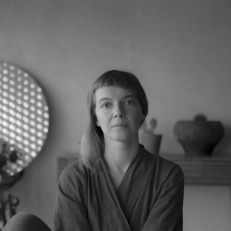
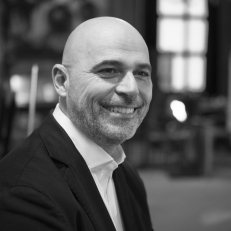
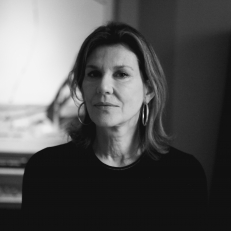
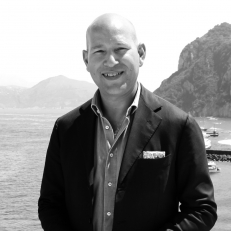
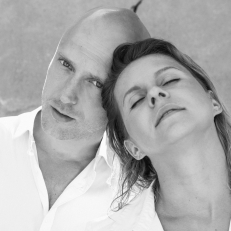
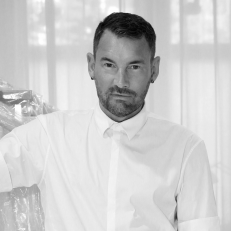
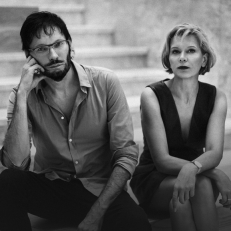
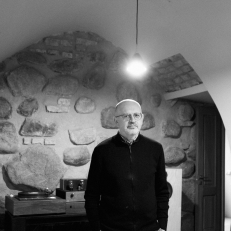

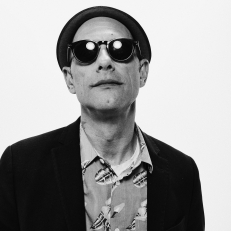


Add a comment